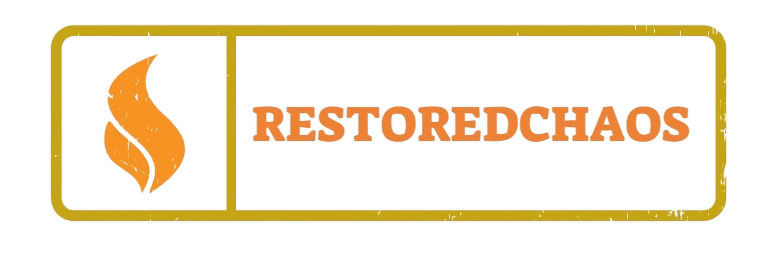In an age that constantly pulls our attention outward—toward digital screens, relentless news feeds, and curated lives on social media—turning inward may feel like swimming against the current. Yet, introspection, the deliberate act of examining our own thoughts, emotions, and behaviors, holds the key to deeper self-awareness, emotional clarity, and genuine personal growth. Far from being an exercise in self-absorption, self-reflection is a cornerstone of mental well-being, effective decision-making, and a more aligned, fulfilling life.
What Is Introspection, Really?
Many people associate introspection with overthinking or navel-gazing. But real introspection is purposeful and structured. It is the kind of inward attention that underpins successful therapy, personal coaching, mindfulness practices, and spiritual growth. At its heart, introspection involves asking the right questions to uncover what drives us, what hinders us, and how we can become more intentional in our daily lives.
Why Is Introspection Important?
Here are seven science-backed reasons why introspection is a practice worth cultivating:
- Self-Awareness
Understanding your own values, strengths, and limitations is the first step to living intentionally. Research shows that those who regularly reflect are better equipped to navigate challenges and make choices aligned with their true selves. - Emotional Regulation
When we can recognize our emotional triggers and understand why we react the way we do, we gain the ability to respond thoughtfully rather than impulsively. This emotional maturity is central to both personal well-being and professional success. - Better Relationships
By examining our communication patterns and boundaries, introspection helps us build stronger, more respectful relationships. It empowers us to resolve conflicts and relate to others with empathy and clarity. - Resilience
Life throws curveballs, but those who reflect are better prepared to handle them. Knowing how you typically react to stress helps you develop coping strategies that boost resilience. - Goal Alignment
Self-reflection illuminates whether our daily actions reflect our deeper values and long-term goals. This alignment reduces internal conflict and increases satisfaction. - Growth and Change
If you feel stuck, introspection can help pinpoint what’s holding you back. Reflective questions often nudge us out of our comfort zones and into new areas of growth. - Creative Problem-Solving
Processing experiences through reflection can lead to surprising insights and fresh perspectives. This can be especially useful in therapeutic or creative contexts.
A Simple Framework for Self-Reflection
You don’t need to meditate for hours to benefit from introspection. A structured six-step reflection process can be integrated into your daily or weekly routine:
- Find Quiet
Choose a calm space. Grab a journal or device to record your thoughts. - Check In Mindfully
Pause and breathe. Scan your body. What are you feeling right now? Where do you feel it? - Identify the Cause
Consider the source of your emotions. Are they driven by your values or by external expectations? - Explore Your Needs
What do you truly need—rest, support, achievement? Are those needs being met? - Take Small Action
Acknowledge your reflections by taking a tiny step. Send a message, take a break, or set a boundary. - Review and Learn
After reflecting, notice any changes in your emotions or mindset. What insights did you gain?
When Reflection Gets Uncomfortable
The inward journey isn’t always smooth. In fact, the first time many people sit quietly with their thoughts, they’re shocked by the chaos they encounter. It’s common to discover a jumble of anxieties, criticisms, and old mental scripts. This can be disorienting or even distressing.
However, mindfulness teaches us not to fear our thoughts, but to observe them without judgment. We are not our thoughts. As we learn to “defuse” from our mental chatter—especially negative or outdated self-talk—we become better able to regulate our emotions and refocus on what truly matters.
20 Questions That Can Transform Your Perspective
The value of self-reflection hinges on the quality of the questions we ask. Here are 20 powerful prompts across different domains:
Self-Discovery
- What values guide my life?
- What brings me meaning?
- Am I living by beliefs I still agree with?
- What do I stand for, even when it’s hard?
- How do my actions reflect my principles?
Daily Check-Ins
- What went well today?
- What challenged me, and how did I respond?
- Did I act in line with my goals?
- What emotion stood out today, and why?
- What would I do differently tomorrow?
Deeper Introspection
- What patterns keep repeating in my life?
- How do I usually handle stress?
- What are my core fears?
- Who am I outside my roles?
- What or whom do I need to forgive?
Naikan-Inspired Journaling
- What have I received from others today?
- What have I given?
- How might I have caused difficulty for others?
Self-Awareness
- What have I learned from my successes and failures?
- What am I avoiding, and why?
Can Introspection Go Too Far?
Not all inner work is helpful. Critics, including spiritual leaders like Sadhguru, caution against over-introspection, likening it to driving while staring into the rearview mirror. When we become overly entangled with our thoughts, we risk rumination and anxiety rather than insight.
But this concern is more about how we introspect than whether we should. Healthy introspection involves a sense of mindful detachment, curiosity, and compassion—not obsession or judgment.
A Balanced Practice
Used wisely, introspection is an act of self-respect. It’s the difference between drifting through life on autopilot and choosing how to show up in the world. It helps us cut through noise, re-center, and live in alignment with who we are and who we want to become.
In a culture that often prioritizes doing over being, introspection reminds us that real change starts not out there—but within.


